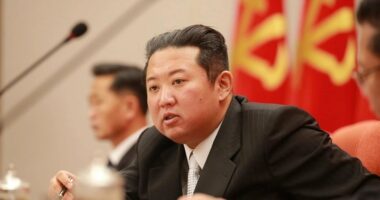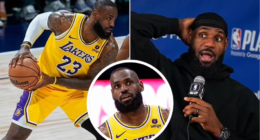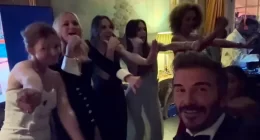IT was the moment a generation that had lived in fear of nuclear obliteration finally breathed a sigh of relief.
After years of Cold War tension, one Russian leader had dared to think differently about the direction of one of history’s biggest empires.

Mikhail Gorbachev with ‘princess’ wife Raisa who was often pictured by his side[/caption]

Gorbachev and Margaret Thatcher agreed to set aside their differences for the sake of peace[/caption]

As Gorbachev lay dying of kidney failure, Putin laid his legacy to waste with the brutal attack on Ukraine[/caption]
The year was 1988, and that leader was Mikhail Gorbachev, a Communist Party charmer cut from very different cloth to his ruthless and austere predecessors.
The devoted father of one, who was often pictured with his “princess” wife Raisa at his side, had brokered a deal with US counterpart Ronald Reagan to end the arms race. The Cold War went into a deep thaw.
But now, 34 years later, he was forced to watch all his tireless work reduced to rubble.
As he lay dying of kidney failure, Russia’s current leader — the despotic Vladimir Putin — laid his legacy to waste with the brutal attack on Ukraine, the homeland of Gorbachev’s beloved wife’s father.
Read more on Mikhail Gorbachev
He had feared war, and here it was. Indeed, in one of his final interviews, he remembered how ordinary Russians had told him “whatever problems we have, whatever food shortages, don’t worry . . . we’ll manage. Just make sure there’s no war.”
Gorbachev had always avoided war. In the late Eighties when revolution stirred in Soviet satellites Poland, Hungary and East Germany, Gorbachev refused to crush the uprisings with Red Army tanks.
The Berlin Wall — the most famous fault line between Communism and the capitalist free West — tumbled in 1989.
‘GUCCI COMRADES’
The Iron Curtain — a phrase coined by Sir Winston Churchill in a 1946 speech — was torn down.
Most read in The Sun
GALLANT QUEST TORN TO SHREDS
By Trevor Kavanagh
SMILING, youthful Mikhail Gorbachev was a breath of fresh air when he burst upon a startled world after decades of the Kremlin’s “living dead”.
This was a bleak period when hard-faced Communist Party geriatrics were dying in droves. Tyrant Leonid Brezhnev popped his clogs in 1982, Yuri Andropov in 1984 and Konstantin Chernenko the next year.
I had a privileged seat among the mourners, with Margaret Thatcher’s Prime Ministerial VC-10 seemingly on constant standby for yet another Russian state funeral.
These were the days when the KGB bugged our phones, willowy blondes toured hotel foyers in pursuit of “kompromat” and scowling babushkas guarded the corridors.
American dollars were like gold dust on the currency black market, and citizens would fight for a pair of Western jeans or a jar of coffee.
Suddenly everything changed and the Parliamentary press lobby were there to witness the Gorbachev phenomenon close up, as he took the helm, changing the world both in rusting, bankrupt Russia and on the world stage.
We witnessed the era of “glasnost” — Gorbachev’s high-risk policy of openness and free speech that lifted the Iron Curtain on the closed Soviet Union.
The transformation was so abrupt that many seasoned statesmen in the West treated the jolly new leader with suspicion.
Was Gorbachev too good to be true? And what about his glamorous, outspoken wife, Raisa?
What had changed in the “Evil Empire”, which had only a few years earlier brought the world within four minutes of nuclear Armageddon?
It took ferocious anti-Communist Thatcher to break the ice and become the first Western leader to offer unflinching support.
“He is a man I can do business with,” she announced — a colossal endorsement from the woman dubbed the Iron Lady by Russia.
The relationship between Thatcher and Gorbachev blossomed into something of a political romance.
And it developed into a global political ménage as US President Ronald Reagan threw the weight of the White House behind Gorbachev.
Gorby became an iconic figure in the West, starring in Spitting Image as the puppet with a hammer and sickle birthmark on his bald head.
Reagan was initially cautious. But suspicions thawed at a series of East-West summits in Washington, Moscow and, sensationally, in Reykjavik, Iceland, when Thatcher stepped in and prevented Reagan from scrapping all of America’s nukes. Both Reagan and Gorbachev were determined to slash the world’s entire nuclear weapons arsenal. But was it a clever Russian ruse to weaken the West?
At the 1988 summit in Moscow, the two superpower leaders signed the Anti-Ballistic Missile Treaty and the first Strategic Arms Limitation Treaty.
Peace was bringing business to a Russia newly opened to the capitalist West.
Thatcher paid tribute by flying in for the opening of the country’s first McDonald’s.
It might have been the first and only time Mrs T enjoyed a quarter pounder with fries.
Tragically, the new age of openness could not last. After seven decades of repression, corruption and authoritarian control, it was impossible to liberalise the vast, creaking Soviet economy overnight.
As Gorbachev said: “I loosened a few screws and it all fell apart.”
He was seized and held in secret over a weekend before being released, never to hold real power again.
The economy collapsed, leaving millions of Russians destitute. Families had to barter precious possessions, including headstones of the recently dead, in return for food.
As Russia suffered, a flinty-eyed KGB officer in St Petersburg was watching with increasing anger.
Vladimir Putin blamed Gorbachev for destroying the historic Rus, the empire of the Tsars, and for driving Poland, Hungary and the Baltic states out of the Soviet embrace.
Within 20 years he had seized control and embarked on a crusade to rebuild the USSR in all but name, starting with Ukraine.
For ailing Gorbachev, the invasion of his mother’s homeland was the final evidence of failure — proof that the road to hell is paved with good intentions.
Millions in Soviet puppet regimes in swathes of eastern Europe and central Asia won their freedom.
Little wonder, then, that UN Secretary General Antonio Guterres said in a tribute that Gorbachev “changed the course of history”.
Gorby, as he was affectionately known in the West, won the 1990 Nobel Peace Prize for his troubles.
And his popularity saw him lampooned as a Spitting Image puppet — complete with birthmark hammer and sickle on his head.
Yet in his Russian homeland, Gorbachev — who died on Tuesday aged 91 — is reviled by many as the man who lost an empire.
Vitaly Milonov, a Russian MP, said the former Soviet president left a legacy “worse than Hitler for our country”.
Russian President Vladimir Putin had called the splintering of the Soviet Union — including Ukraine gaining its independence — the “greatest geopolitical catastrophe of the century”.
But committed Communist Gorbachev never planned to end what Reagan called the “Evil Empire”.
His aim was to breathe life into a creaking Soviet economic system and finally end the conflict between East and West.
Gorbachev knew the frailties of his Soviet superpower’s political system inside out.
The son of peasants born in the Stavropol region of southern Russia in 1931, he had driven combine harvesters on collective farms in his teens and was awarded the Order of Red Banner of Labour for helping his father gather a record harvest.
The prize — and his academic abilities — won him a place to read law at prestigious Moscow University, where he joined the Young Communist League.
His aim was to breathe life into a creaking Soviet economic system and finally end the conflict between East and West.
It was at university he met the elegant and impeccably stylish philosophy student Raisa Maksimovna, who was the daughter of a railway engineer from Chernihiv, Ukraine.
Theirs was a true love story. They married in 1953 and were inseparable until her death 46 years later.
Gorbachev said in a 2012 documentary: “We walked through our whole life holding hands. She was like a princess.”
After university, he rose swiftly through the Communist Party ranks becoming a member of its ruling Politburo at the age of 49.
In December 1984 — as the Kremlin number two — he and Raisa came to Britain for a meeting with Margaret Thatcher to discuss nuclear disarmament.
A nation expecting a dull and dour Soviet party man were instead greeted by a dapper, smiling gent in sharp suit and tailored overcoat.
At Gorbachev’s side as he thawed East-West relations from deep freeze was auburn-haired Raisa. A Fleet Street columnist wrote: “What a contrast to the previous glimpses we have had of other senior Russian wives in the past, who looked as though they should be building dams in Siberia.”
One paper labelled the Gorbachevs “the new Gucci comrades”.
Mrs Thatcher and Gorbachev agreed to set aside their differences for the sake of peace.
The PM told the BBC: “We both believe in our own political systems. He firmly believes in his; I firmly believe in mine.”
But she insisted that what they had in common was that they would “both do everything we can to see that war never starts again”.
And, in words that still reverberate today, she said: “I am cautiously optimistic. I like Mr Gorbachev. We can do business together.” When three ageing Soviet premiers died in quick succession, Gorbachev was anointed general secretary of the Politburo in 1985.
A nation expecting a dull and dour Soviet party man were instead greeted by a dapper, smiling gent in sharp suit and tailored overcoat.
He immediately set out a programme of reforms to revive his nation’s stagnant economy and overhaul the Communist Party.
‘ACUTE LONELINESS’
Gorbachev insisted the country needed “perestroika” — or restructuring — and that in turn required “glasnost” — meaning openness.
And Gorbachev became peacemaker, beginning with the so-called Fireside summit in Geneva in 1985.
Reagan told his counterpart: “The US and the Soviet Union are the two greatest countries on Earth.
“They are the only ones who can start World War Three, but also the only two countries that could bring peace to the world.”
In a 1987 speech in West Berlin, Reagan had implored his counterpart: “Mr Gorbachev, tear down this wall.”
Following more summits, the two men agreed unprecedented cuts in their nuclear arsenals.
The risk of a Third World War no longer loomed.
Perversely, Gorbachev’s reforms hastened the collapse of the Soviet Union rather than saving it. A population enjoying its first taste of free speech was quick to air many grievances. The leader’s tenure was over.
On Christmas Day, 1991, he made a farewell speech saying society “has been freed politically and spiritually”. Yet in parts of the old USSR — including Lithuania, Latvia and Georgia — Gorbachev is remembered as a leader who sent in the military to quell protests, leading to the death of innocents.
The last Soviet leader — who did not smoke and forswore hard liquor — possessed a tuneful singing voice and a self-deprecating sense of humour.
Gorbachev even appeared in a Pizza Hut ad, admitting he did it for the money to prop up his charitable foundation.
They are the only ones who can start World War Three, but also the only two countries that could bring peace to the world.
Gorbachev on the USA and Soviet Union
He and Raisa had daughter Irina, now 65. After Raisa died of leukaemia in 1999, Gorbachev was bereft.
A year after her death he would write in his diary: “I have never had such an acute feeling of loneliness.”
In his farewell speech at the end of his premiership, he listed his achievements as an end “to the Cold War, the arms race and the insane militarisation of our country”, adding: “The threat of world war is no more.”
It is an epitaph smashed to pieces this year by Putin.
Boris Johnson said yesterday that “the current leadership in Moscow is intent on undoing the good of Mikhail Gorbachev”.
Read More on The Sun
He added that there was “a revenge-driven attempt to recreate that Soviet empire” in Ukraine.
The deeds of a statesmanlike peacemaker undone by a blood-stained warmonger.
AN EXTRAORDINARY AND YET TRAGIC LIFE
By Douglas Murray
MIKHAIL Gorbachev went a very long way in his life. Not just in becoming the most powerful man in Russia, but in his own political journey.
He began life as a Leninist and made his way up the Communist party ranks. But he made history by achieving the highest office in Russia and becoming a democrat.
It was one of the most significant personal political journeys of the 20th Century – a shift in belief that meant East and West could try to understand each other again.
Without Gorbachev, the Cold War might still be rumbling on.
Yet those who came after him did not appreciate him.
The manner in which the USSR fell apart was pinned on him, and his latest successor, Vladimir Putin, blamed him for nearly everything.
Indeed, Putin blamed Gorbachev alongside Tsar Nicholas II for Russia’s “humiliation”, something he felt it was his destiny to reverse.
There is something tragic about Gorbachev’s life. He made a leap of faith, and while it worked for some, it did not help the lives of enough.
The grand theft of the country’s resources in the 1990s and the rise of the oligarchs were seen as the inevitable results of “capitalism”.
Putin is among those to have gained most from the theft – he is one of the world’s richest men.
But it is what Gorbachev had to witness in his last years that is most tragic. He tried to make his country free only to see it return to tyranny. He tried to make peace only to see his successor make war.
His legacy has not yet been undone, but he must have wondered if it had.

Gorbachev brokered a deal with US counterpart Ronald Reagan to end the arms race[/caption]

The son of peasants born in the Stavropol region of southern Russia in 1931, he had driven combine harvesters on collective farms in his teens[/caption]

Gorby, as he was affectionately known in the West, won the 1990 Nobel Peace Prize for his troubles[/caption]

After Raisa died of leukaemia in 1999, Gorbachev was bereft[/caption]


Thatcher paid tribute to Gorbachev’s modernisation of the USSR by flying in for the opening of the country’s first McDonald’s[/caption]













